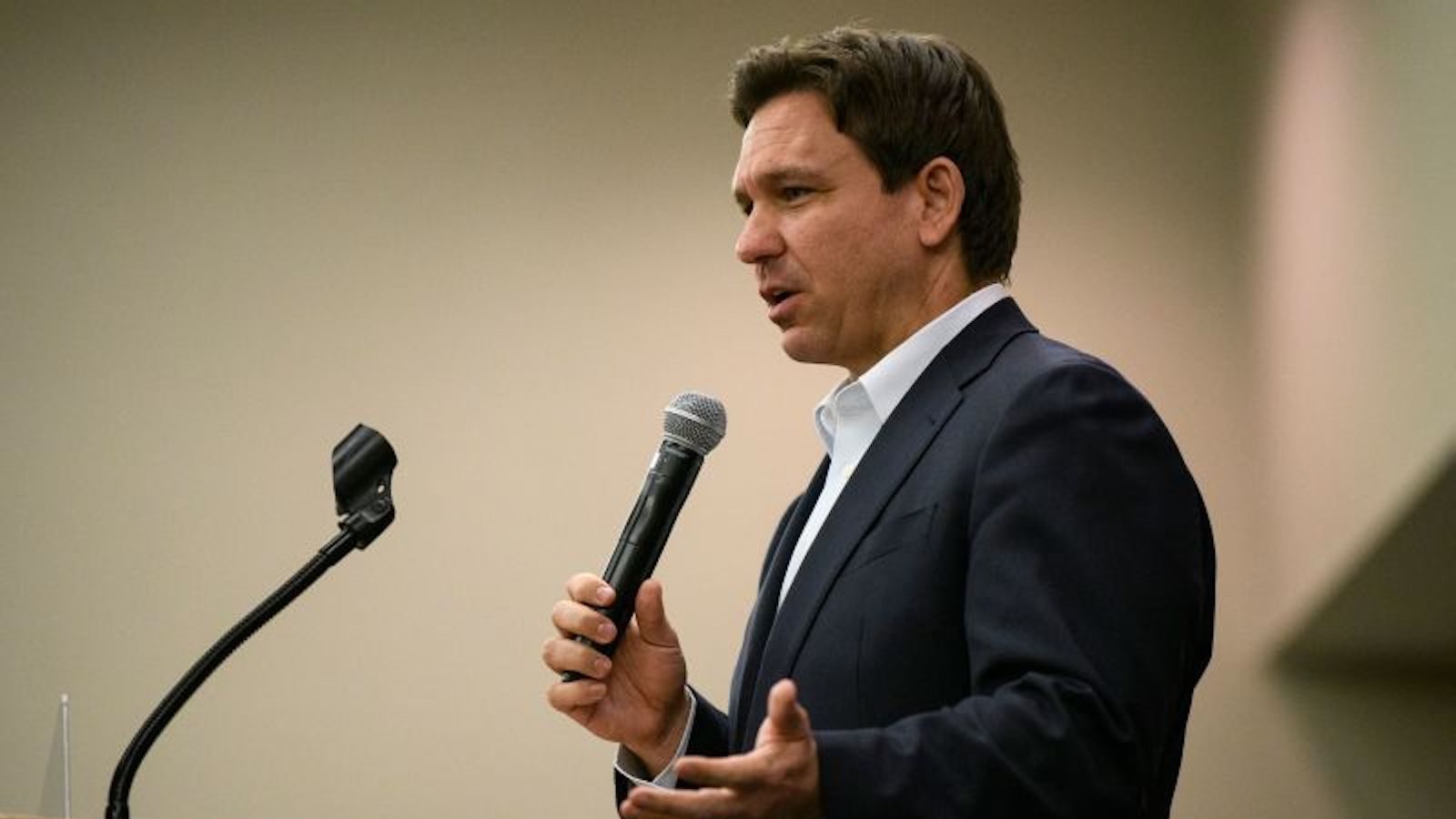(Trends Wide) — De Ron DeSantis is expected to enter the 2024 presidential race this week. But the Florida governor begins his campaign to win the Republican nomination with polling numbers reeling and former President Donald Trump the clear favorite in the primary.
Still, DeSantis remains by far the best hope for the anti-Trump forces within the Republican Party. And some recent historical examples indicate that he has a real chance to be his party’s nominee.
Trump turned what polls once showed as a competitive matchup in the early days to what is now a huge lead over DeSantis. Former President Trump was ahead of DeSantis by about 10 points nationally late last year. Trump was in the polls with around 40 points, while DeSantis was around 30 points.
Today, Trump is averaging over 50% nationally among Republican voters. DeSantis has slipped back into his late twenties. No one else is even in double digits.
The numbers look slightly better for DeSantis in early voting states. What had been to DeSantis’ advantage in New Hampshire, according to University of New Hampshire polls, has now turned out to Trump’s advantage. Trump is up 42% from 22% in his last poll. Limited published data in Iowa points to a similar trend line.

Florida Governor Ron DeSantis speaks during an Iowa Republican event in Cedar Rapids on May 13, 2023. (Credit: Stephen Maturen/Getty Images)
The road to a return to the top of the polls
While the numbers don’t look great for DeSantis right now, it’s worth remembering that he hasn’t formally entered the race yet. We don’t know what could happen when he gets on the campaign trail as a candidate. History shows us that there is time for DeSantis to return.
In 2007, Illinois Senator Barack Obama had a national average of about 20 points heading into the 2008 Democratic primary season. New York Senator Hillary Clinton was dominating national polls for the Democratic nomination with nearly 40% support. the votes. Her advantage grew slightly during the second half of the year.
And yet Obama ended up defeating Clinton.
In that same cycle, Arizona Sen. John McCain was stuck in around 20 points in the first national polls of the Republican primary. After slipping back to the mid-10s in the second half of the year, McCain would also make a forceful comeback.
History suggests that someone in DeSantis’s voting position has about a 1 in 5 (20%) chance of winning the nomination. To put that in perspective, you have a 1 in 5 chance of picking your little finger in a sleight of hand.
Trump, of course, has a significantly higher chance of winning the nod from the Republican Party. The only previous candidate to come close to Trump’s percentages in the primary vote in early national polls and then not become his party’s nominee was Massachusetts Senator Ted Kennedy in the 1980 cycle. Most of the candidates Those who were in Trump’s current position or better (Bob Dole in 1996, Al Gore in 2000, George W. Bush in 2000, and Hillary Clinton in 2016) won their party’s nominations with relative ease.
These early poll numbers are significant in what they tell us about the state of the electoral race. Trump is in a much better position than he was at this point in the 2016 cycle, when he was in single digits. (However, that cycle is a terrible comparison to this one: The leader at this point in the race at the time, Wisconsin Gov. Scott Walker, was between 14 and 16 points nationally.)
How DeSantis can win
To beat the odds, DeSantis probably needs at least one of two things to happen.
One, he needs to make sure that more of the party establishment does not support Trump. The former president already has more than four times more endorsements from members of Congress and governors than during the 2016 primary cycle.
Trump is not likely to stop if he has the support of the party and is able to dominate press coverage as he has shown he can.
Keep in mind that all presidential contenders with a similar proportion of endorsements from senior elected officials at this early stage in the cycle have become their party’s nominees. That being said, most Republican members of Congress and governors have yet to weigh in. In other words, the party has not yet decided.
The second option for DeSantis is to win in Iowa or New Hampshire. That’s not enough to win the nomination, but it probably is necessary. Both Obama (Iowa) and McCain (New Hampshire) won an early election, boosting their campaigns.
The good news for DeSantis is that he’s polling better in those states than he is nationally, even if he trails Trump in both. A DeSantis win in either state would show us if Trump’s lead is built on solid footing or like a deck of cards.
The bottom line for DeSantis is this: He has a solid chance to win his party’s nomination, but it won’t be easy.





